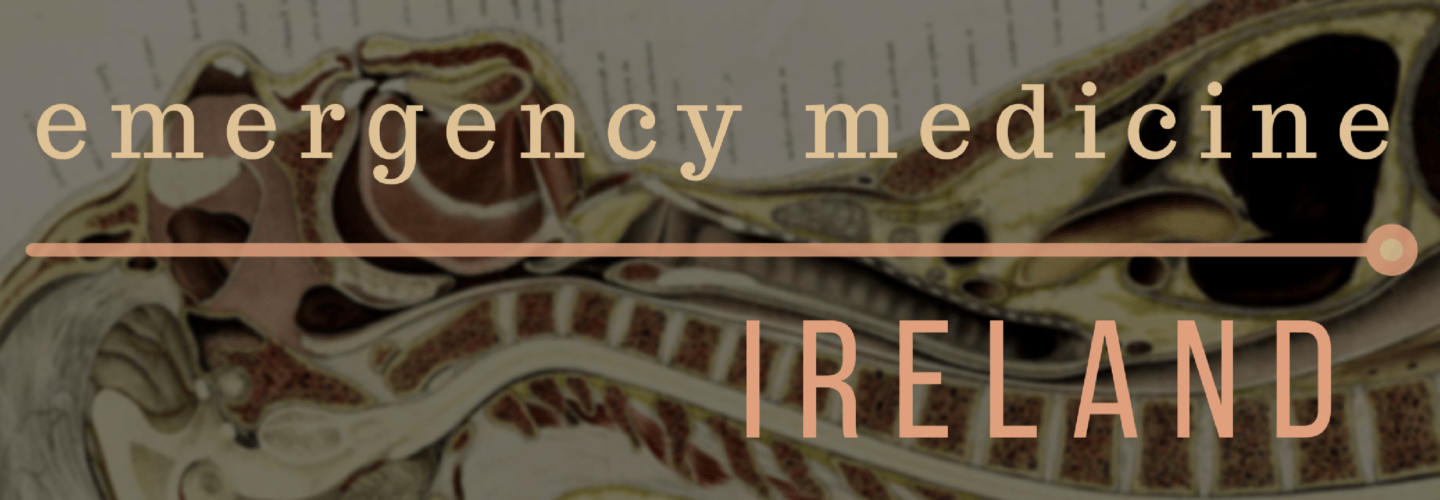Concussion is a strange beast. We know what to do with extra-durals (we think) but what do we do with concussion. We don’t even know what it means or what is going on at a cellular level. Yeah the CT looks normal but that doesn’t mean the brain is normal. Certainly, patients with concussion type symptoms don’t feel or behave normally.
So what do we do with a condition like that? Study it lots and come up with consensus statements like this one.
It’s a good read and it’s freely available. Concussion is something we see A LOT of and we need to think a little beyond “is there blood in the brain or not”
The evidence behind all this isn’t wonderful (in terms of high level RCT) but the paper does provide some useful insight into what to tell patients. I’ve given some highlights with commentary below.
Concussion is defined as a complex pathophysiological process affecting the brain, induced by traumatic biomechanical forces. Several common features that incorporate clinical, pathologic and biomechanical injury constructs that may be utilised in defining the nature of a concussive head injury include:
While wordy, it’s fairy accurate – “we haven’t much of a clue but there’s a lot going on.”
1. Concussion may be caused either by a direct blow to the head, face, neck or elsewhere on the body with an ‘‘impulsive’’ force transmitted to the head.
2. Concussion typically results in the rapid onset of short-lived impairment of neurologic function that resolves spontaneously.
3. Concussion may result in neuropathological changes but the acute clinical symptoms largely reflect a functional disturbance rather than a structural injury.
4. Concussion results in a graded set of clinical symptoms that may or may not involve loss of consciousness. Resolution of the clinical and cognitive symptoms typically follows a sequential course; however it is important to note that in a small percentage of cases however, postconcussive symptoms may be prolonged.
5. No abnormality on standard structural neuroimaging studies is seen in concussion.
This is what I try to explain to patients – though obviously it needs translated into patient speak. Typically I will spend a good 5 minutes talking to patient and family following evaluation for a bump on the head like this. Time well spent for a disease which we have no other intervention for. Talking to patients – hard bloody work but worth it.
The panel however unanimously retained the concept that the majority (80–90%) of concussions resolve in a short (7–10 day) period
I don’t use the numbers in discussion (though I might now) and I say 10-14 rather than 7-10 days but they get the point that most people are better quickly
brain CT (or where available, MR brain scan) contributes little to concussion evaluation
DO NOT SCAN FOR CONCUSSION. Of course – it’s not always that easy to tell but a scan will not help in the slightest for concussion
It is worth noting that standard orientation questions (eg, time, place, person) have been shown to be unreliable in the sporting situation when compared with memory assessment.
I don’t currently do formal memory assessments – it usually becomes clear in the situation (when the patient asks for the 4th time what happened…) that memory is an issue
The cornerstone of concussion management is physical and cognitive rest until symptoms resolve and then a graded programme of exertion prior to medical clearance and return to play
Generally each step should take 24 hours so that an athlete would take approximately one week to proceed through the full rehabilitation protocol once they are asymptomatic at rest and with provocative exercise.
In my current ED we see a lot of young sports players (mainly rugby) whose first question is when can they get back to play
Epidemiological studies have suggested an association between repeated sports concussions during a career and late life cognitive impairment
This is something that seems to reinforce the significance of concussion for patients.
There is no good clinical evidence that currently available protective equipment will prevent concussion
While it seems there’s evidence for helmets reducing fractures, there seems to be none for reducing concussion.
Well worth the read.
McCrory, P, W Meeuwisse, K Johnston, J Dvorak, M Aubry, M Molloy, and R Cantu. “Consensus Statement on Concussion in Sport: the 3rd International Conference on Concussion in Sport Held in Zurich, November 2008..” 43:i76–90, 2009. PMID 19433429

At my shop we are lucky enough to have a diligent and interested OT who follows all our mild TBI’s up and does PTA testing and rehab where necessary…even the drunk idiot ones get offered f/u
cool – what about interventions? Obviously we can track the fact that you’re still concussed but is there anything OT can offer?
I was just listening to this lecture from Latha Stead the other day, and her take-home message seems to focus on the importance of identifying and arranging close follow-up for these patients. She delves a bit into the neuro clinic they’re setting up in her ED, but there’s a lot of good concussion info to be had and these folks are AGGRESSIVE about identifying these patients following even minor head injuries. Good stuff.
http://freeemergencytalks.net/2012/07/latha-stead-usa-updates-in-traumatic-brain-injury/
cheers for the link to the talk. i think patients with concussion are a bit lost for services as their family docs don’t know what to do with them and all we do with them is scan them and send them home most of the time.